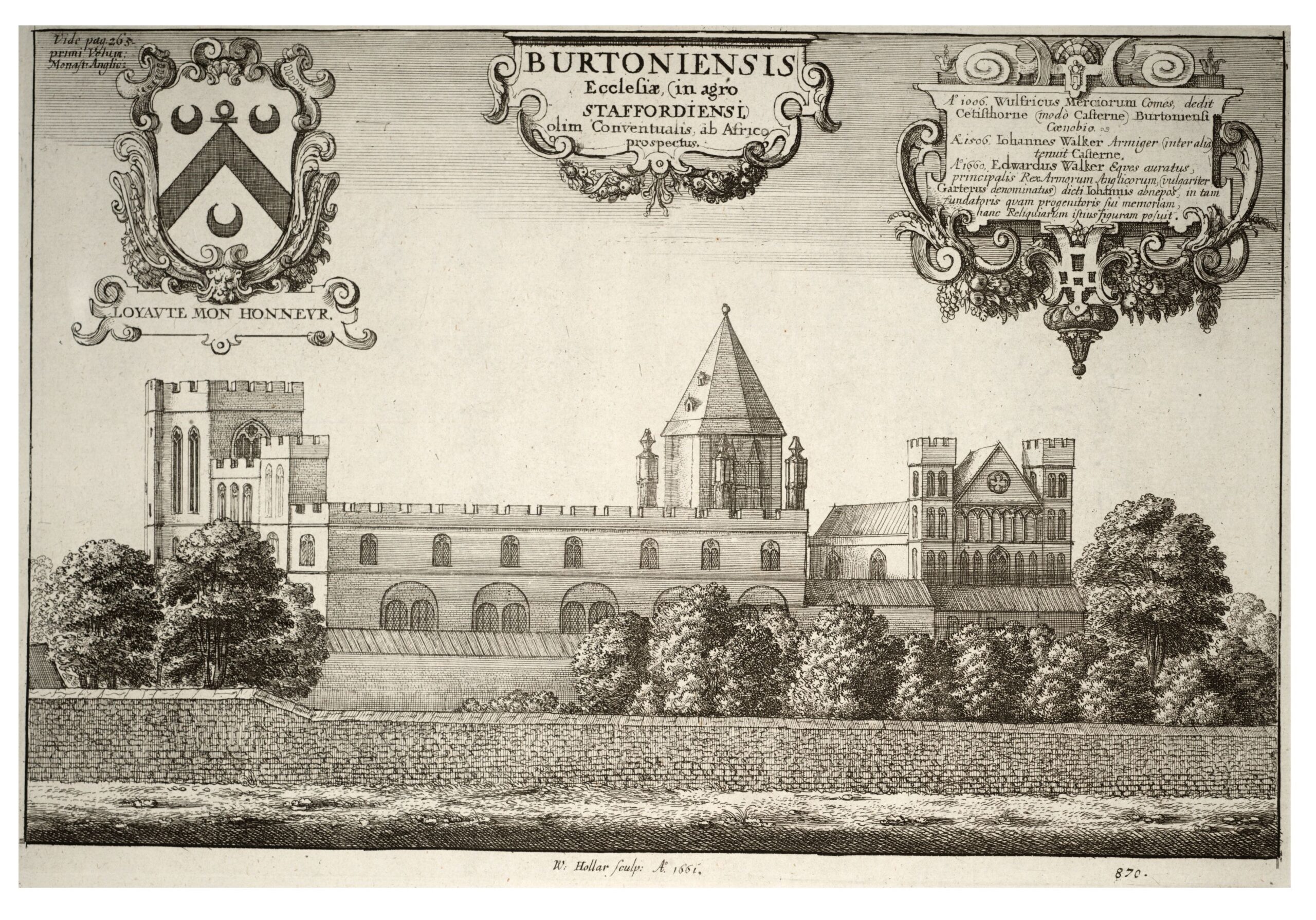Paget’s influence and town affairs
The ancient records show that almost all of the trades had been lost to Burton by the mid 18th century either due to the lack of required machinery and capital or eclipsed by the competing industries elsewhere in the British Isles. It was here, however, after an irritating run-in with the Lancashire rioters in 1779, in the busy neighbourhood of Burton and by the sandy banks of River Trent, Mr Robert Peel came across what he desired: the perfect location for his cotton factories.
At Burton, there was protection from the invested capital in labour, there were many unused sites and buildings left by the former owners, and no danger from the riotous groups to throw his machinery into the river. But above all, there was plenty of access to the world by the river Trent, and this was made even more convenient financially with the backing hand of Joseph Wikes, director to the Burton Boat Company. Also, it did not hurt, in the very least, that the contract facilitated him with mill sites and water to power the machinery.
This should be noted, however, that the original property leases were bought on the tenure of ‘free-hold for three lives,’ and literal to its words as discovered later when the third generation of Peels expired, the Pagets became the custodians of the cotton mills. Lord Paget took advantage of the increased value of the mills that were brought up by the profiting trade. He unceremoniously placed a hefty fine for the renewal of the mills, and those who had brought the labour to the town started to withdraw. Thereafter, the Peels pulled out of Burton from the dominion of the Pagets, and like other businesses before them, it too dwindled to nothing.

After Lord Paget arrived in Burton from a trip abroad in 1705, John Hixon, the manorial bailiff, came to him with a complaint that in his absence the town came under the administration of the lawyers and that the townsfolk had become willful and headstrong. The most prominent amongst them was Isaac Hawkins, who walked on thin ice with Hixon. Hawkins was conniving to bring in his supporters as feoffers to the lands, but as Hixon was quick to point out that most of his supporters were burgesses who had nothing but worthless tenements – and most of all – uneducated, and easy to manipulate.
Lord Paget, on the other hand, was determined to handpick his supporters, mainly because he was the one who put the wheels to Trent Navigation Act of 1699 to motion, and this meant that the feoffees would become its bureaucrats. Thereupon, Hixon became one of the feoffees, but Hawkins did not; Hawkins did not attend any meeting that year to discuss the accounts. However, this victory was short, Hawkins and Lord Paget passed away in 1713 while Hixon followed them in 1714. Upon their deaths, the parish Vicar, William Browne – Hawkin’s son in law – assumed the position of the head of the feoffees.
Browne retained the leading status for as long as 1746, together with his son, two other Hawkin cousins, and several other ministers, like Henry Hayne. Henry was the leaseholder of the Trent Navigation till his death in 1757, and in 1762, the lease expired. The renewed lease favoured the interests of a Birmingham chap, Sampson Llyod, an iron merchandiser. Another Isaac Hawkins, the cousin of former Isaac Hawkins, blatantly supported Sampson in all his endeavours. It was this Isaac’s inheritors who pushed the firm to great lengths and practically dominated Burton’s enfeoffments throughout most of the late 18th century.
The feoffees made early enhancements to the town by paving the streets and furnishing the lightings. On public demand, the town was also provisioned with a night watch in 1793. The feoffees met every year, without fail, on St Thomas’s day (21st December), as dictated by the customs. After the churchwardens retired, they took up the responsibilities of town masters. They collected the rents from all the households in the town and presented the accounts to the feoffers. The venue for their annual meeting was unexpectedly shifted from the house on the west range of High Street (publicly called the Town House) to Crown inn in 1784.





